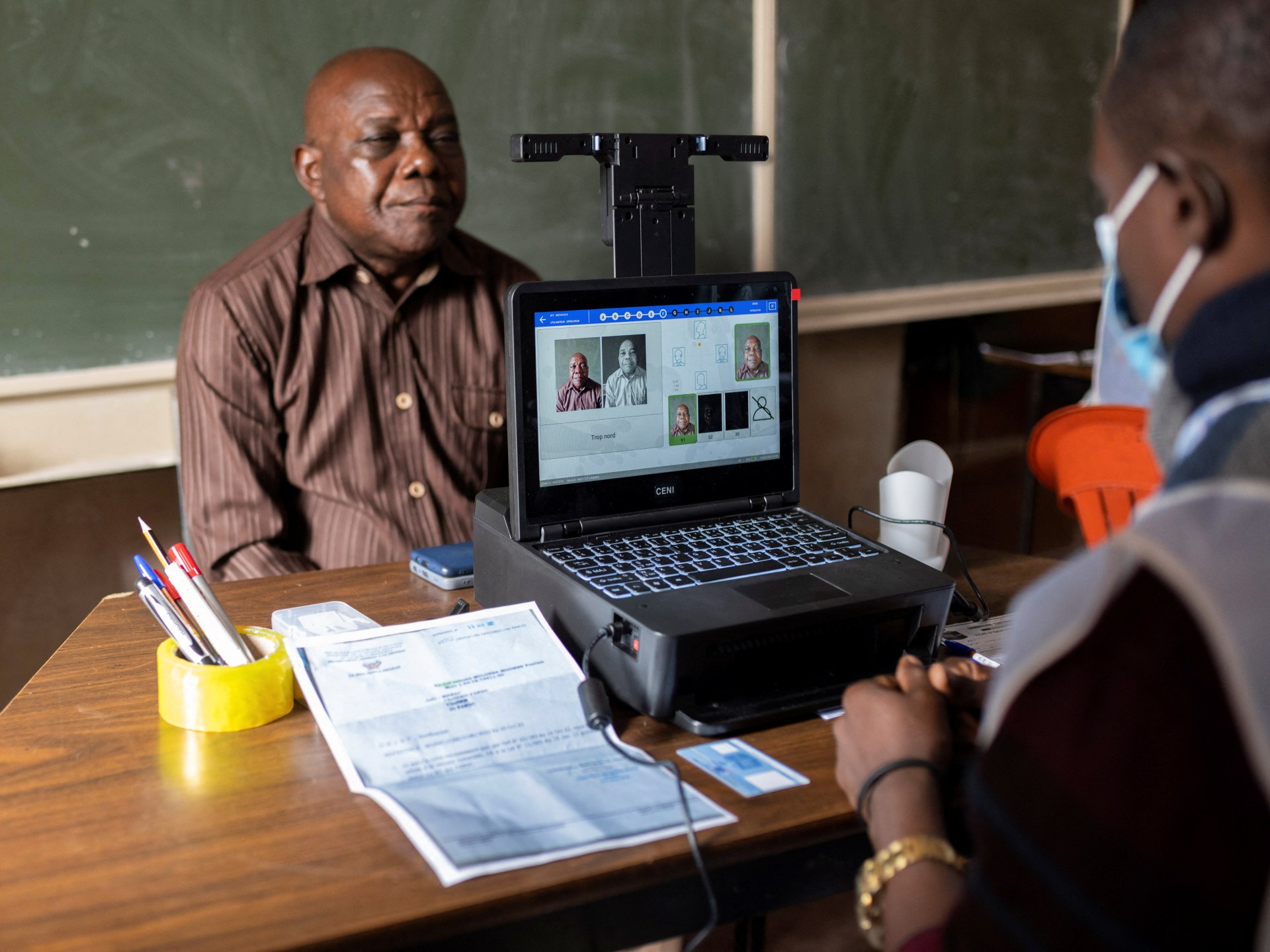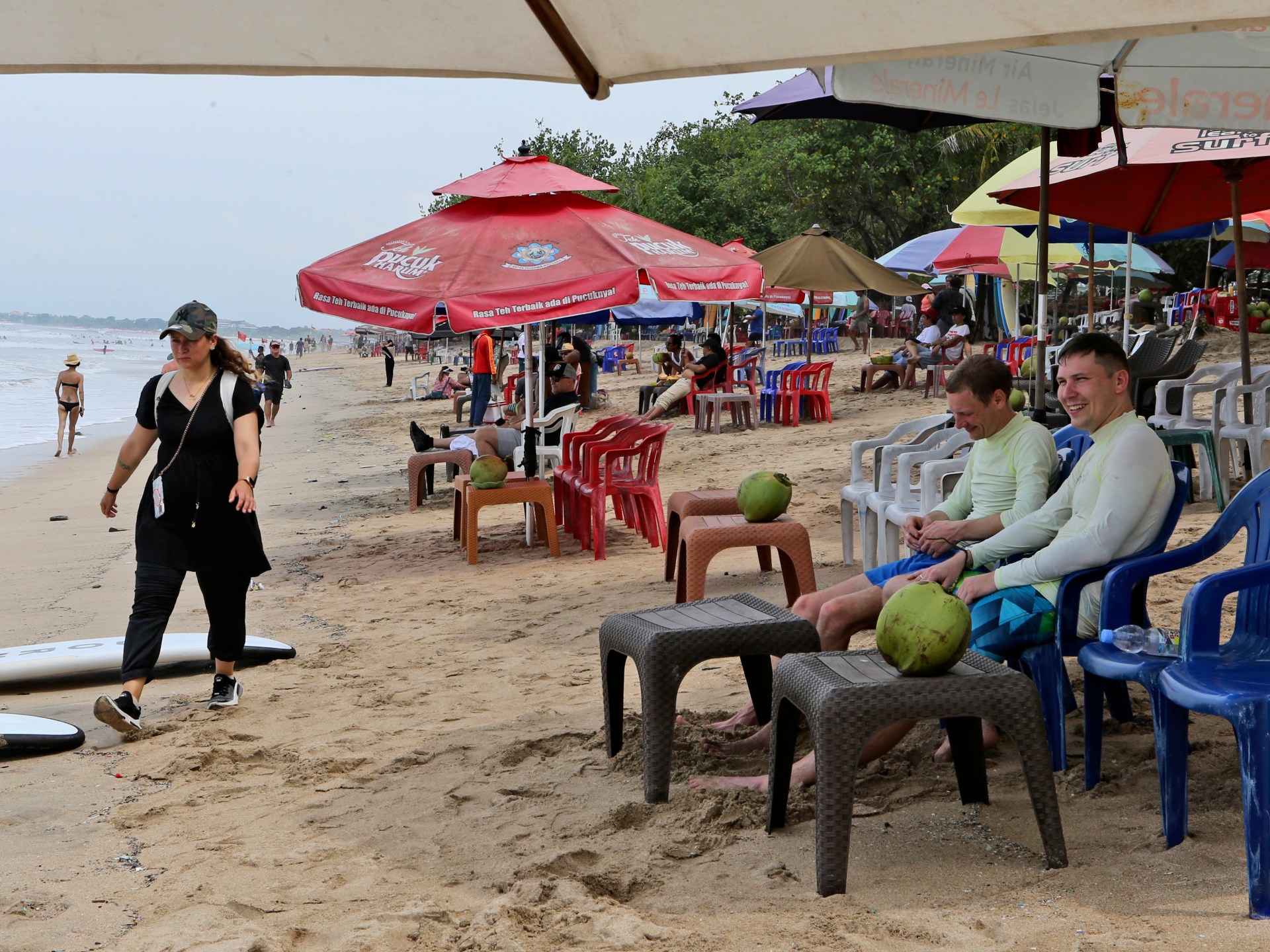DR Congo is heading towards another sham election | Opinions
April 14 was an important date in the Democratic Republic of the Congo (DRC). My colleagues and I from across the spectrum of civil society and the political opposition met in the city of Lubumbashi to discuss the deteriorating state of our country and potential solutions.
We are profoundly concerned about a number of issues that, if left unaddressed, will severely compromise the integrity of the upcoming election, scheduled for December. The problems are evident, and alarm bells are mounting.
Since taking power after an election that was widely seen as fraudulent by both domestic and international observers, President Felix Tshisekedi has brazenly violated our constitution in a selfish pursuit to once again wrest power away from the Congolese people.
He has appointed judges unconstitutionally; handpicked partisan members of the supposedly independent electoral commission (CENI); imposed or otherwise failed to reform unfair electoral laws that are favourable only to him; and declared a “state of siege” – which amounts to martial law – in North Kivu and Ituri provinces, areas known to be opposition strongholds.
Meanwhile, CENI has been failing to meet its voter registration responsibilities. In January, the commission said it had managed to enrol only 7 million Congolese voters, from 10 provinces. Then for several months, CENI officials refused to release new figures upon repeated requests made by our coalition. In the past few weeks, CENI has declared that it has enrolled nearly 47 million Congolese out of an estimated 49 million eligible voters. There aren’t many people in the DRC who believe these figures to be credible, not least because of the fact that they were not broken down by electoral district.
The legal system continues to be used to quash dissent. Opposition leaders, as well as critical journalists, artists, and human rights activists, have been slapped with criminal charges or other trumped-up and arbitrary legal actions. This is creating a climate of fear, as documented by numerous international human rights groups – including the Committee to Protect Journalists and Human Rights Watch – and is meant to discourage opposition activity and participation as well as citizens’ access to information in the lead-up to the election.
As things stand today, the situation in the DRC is not conducive to a free, fair and credible election. Under the Tshisekedi regime, political rights and civil liberties in our country have sharply declined as its collapsing ratings on the Ibrahim Index of African Governance, Freedom House’s Freedom in the World report and Transparency International’s Anti-Corruption Perceptions Index demonstrate. Even the Catholic Church expressed public concern, much as it has in the past.
Nevertheless, the December election remains our best chance to peacefully address the failures of our government. We maintain that the only solution is to plan for and duly conduct a transparent, impartial, and peaceful poll. Our leaders must ultimately be accountable to us, the Congolese people, and we must avoid a repetition of past electoral failures, including the one in 2018, which have rubber-stamped illegitimate processes.
The task of ensuring a free and fair election largely falls on us, patriotic Congolese. However, there are important steps that the international community, and the United Nations in particular, can take to help us move the DRC towards peace and stability.
First and foremost, the UN and its relevant agencies must urgently assist with the needed resources and expertise to save our voter registration process from failure as CENI clearly struggles with its responsibilities.
Millions of potential voters remain without the requisite documents to participate in the polls. And many more in the eastern part of our country remain deliberately disenfranchised, as they were in 2018, due to the regime’s declared “state of siege” – a crisis of their own making and an expedient excuse to prevent those opposed to the current president from voting on election day.
Second, the UN can assist in the lead-up to and during the election with independent monitors who are tasked with, and empowered to, speak up when irregularities or fraud occur, as they have in the past.
As was the case in Nigeria this year, the threats of violence and insecurity can hamper voter turnout and undermine the credibility of the results. Having a respected and widely visible presence from the UN on the ground will help ease voters’ minds and encourage them to go to the polls. No Congolese citizen should fear physical harm or death simply for exercising their basic human right to cast a ballot.
Third, the UN – with the support of the Office of the United Nations High Commissioner for Human Rights – can activate its special procedures, including country visits from special rapporteurs. These officials can be tasked with ensuring that the electoral context is conducive to a free and fair vote while also publicly acknowledging the shortcomings and providing informed remedies for them.
As part of this mandate, UN special rapporteurs should engage in advocacy, raise public awareness and provide advice for technical cooperation – both inside and outside the UN – to ensure that our institutions fulfil their mandate to the Congolese people.
Inaction ahead of the December election is unjustifiable and dangerous. Another inherently flawed election will further undermine stability and peace in the country, fortifying a sense of hopelessness among Congolese citizens that has prevailed for a generation. There is a palpable tension and widespread frustration, and we are getting close to a breaking point. Our country and the wider region can ill afford the disastrous and entirely preventable repercussions of an unfair presidential poll.
We will continue doing all that we can on the ground to register citizens to vote, to encourage them to turn out on election day and to ultimately hold our leaders accountable. But we need help from international bodies – those who purport to stand for and support democracy worldwide – to join us in this endeavour. It is not too late to do so.
The views expressed in this article are the author’s own and do not necessarily reflect Al Jazeera’s editorial stance.




